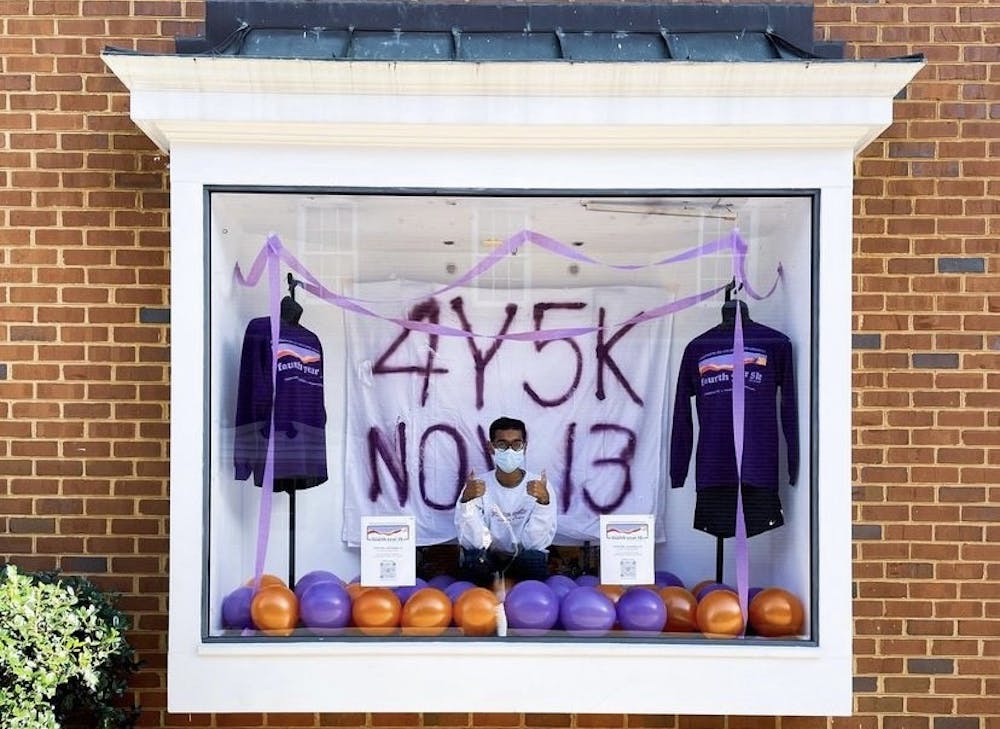Lea en español
Hundreds of members of the University community will wake up early Saturday morning to participate in the 30th annual Fourth Year 5K, a race organized by the University’s Peer Health Educators. Last year, almost 1,000 people ran the race individually and asynchronously, and organizers hope to see another strong turnout this year — the first time the race has been held in person since the onset of the pandemic.
Race entry costs $17 and sign-ups close Friday. The first 1,000 people who arrive at the race will receive a race packet including a long sleeve cotton race t-shirt, race bib and snacks and beverages.
Peer Health Educators was established in 1971 after the admission of women to the University. The group of students are trained to help support health and well-being through events and outreach programs, of which the Fourth Year 5K is just one of many. Members of Peer Health Educators also distribute the Wahoo Weekender — a list of substance-free weekend events in Charlottesville — and deliver outreach presentations across Grounds.
“Since our goal is to provide a fun, positive tradition for students, we want to reach as many students as possible,” said fourth-year College student Annie An, who serves as an intern for PHE. “At the same time, we recognize students extend beyond U.Va. into greater Charlottesville, so we want to invite the community to share in the tradition in promoting well-being and empowerment.”
The race is meant to get students out of bed and exercise, but will remind them to practice safe drinking habits. The run traditionally occurs on the day of the last home football game and is meant to replace the long-standing tradition of the “fourth-year fifth,” which involves the consumption of a metric fifth of alcohol by students — typically fourth years — on the last home football game of the season.
The race is held in memoriam of Leslie Baltz, a fourth-year student who died in 1997 on the evening of the last home football game as a result of a high-risk drinking accident. That same day, another student ended up placed on a respirator in the same room as Baltz after drinking too much bourbon.
To honor their daughter, Baltz’ family started the Leslie Baltz Foundation, an art history scholarship program. Race organizers donate the race’s proceeds.
According to PHE, data collected by the organization has shown that University students have been drinking less and binge drinking less in the past ten years. Students are also using safe drinking strategies, like staying with a group of friends, drinking water while they drink and eating food before drinking. The University has also adopted programs to encourage students to drink safely and recognize the signs of an alcohol overdose, such as the PUBS program.
“We know that encouraging bystander intervention and promoting community connection are two effective ways to increase healthier behavior choices and create a culture of well-being at U.Va.,” An said.
Attending the race will allow students to cross off numerous items on the bucket list of 113 things students should do before graduating from the University. Participating in the race itself is on the list, as is taking pictures with University President Jim Ryan and CavMan.







